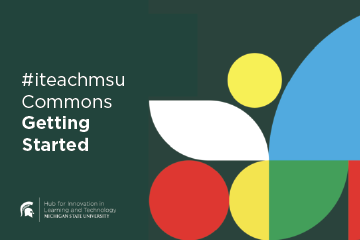We found 113 results that contain "education"
Posted on: Group 2

Eastern Education
Education is the transmission of knowledge, skills, and character traits. There are many debates about its precise definition, for example, about which aims it tries to achieve. A further issue is whether part of the meaning of education is that the change in the student is an improvement. Some researchers stress the role of critical thinking to distinguish education from indoctrination. These disagreements affect how to identify, measure, and improve forms of education. The term can also refer to the mental states and qualities of educated people. Additionally, it can mean the academic field studying education.
ASSESSING LEARNING
Posted on: Educational outcomes.


Education sciences edit 2
Education sciences,[1] also known as education studies, education theory, and traditionally called pedagogy,[2] seek to describe, understand, and prescribe education policy and practice. Education sciences include many topics, such as pedagogy, andragogy, curriculum, learning, and education policy, organization and leadership. Educational thought is informed by many disciplines, such as history, philosophy, sociology, and psychology.
edit 1
Faculties, departments, degree programs, and degrees on education sciences are often called simply faculty of education etc.[3] It is likewise still common to say she is studying education, which is only very rarely expressed as studying education science(s) and was traditionally called studying pedagogy (in English) in most European countries. Similarly, educational theorists may be known as pedagogues depending on the country.
edit 1
Faculties, departments, degree programs, and degrees on education sciences are often called simply faculty of education etc.[3] It is likewise still common to say she is studying education, which is only very rarely expressed as studying education science(s) and was traditionally called studying pedagogy (in English) in most European countries. Similarly, educational theorists may be known as pedagogues depending on the country.
DISCIPLINARY CONTENT
Posted on: #iteachmsu


Connecting Knowledge to Action through Global Education Competency
Competency Info
This is the second micro-credential in the “21st Century Learning through Global Education” stack. It is encouraged that the micro-credentials in this stack are earned in sequence, as each skill builds on the previous one in the stack.
The educator builds upon the identified considerations for practice by incorporating strategies and activities that support global education practices. The educator reflects and categorizes them according to the four global competencies.
This is the second micro-credential in the “21st Century Learning through Global Education” stack. It is encouraged that the micro-credentials in this stack are earned in sequence, as each skill builds on the previous one in the stack.
The educator builds upon the identified considerations for practice by incorporating strategies and activities that support global education practices. The educator reflects and categorizes them according to the four global competencies.
NAVIGATING CONTEXT
Posted on: #iteachmsu


https://www.ucsfhealth.org/education/healthy-lifestyles-healthy-outlook
https://www.ucsfhealth.org/education/healthy-lifestyles-healthy-outlook
Posted on: #iteachmsu


Response Accommodations
This micro-credential, one of four in the Accommodations stack, addresses response accommodations. These micro-credentials are consistent with the Individuals with Disabilities Education Improvement Act (IDEA) requirements and are therefore relevant to students in grades K-12 with disabilities.
Supporting Rationale and Research
Beech, M. (2010). Accommodations: Assisting students with disabilities, 3rd Ed. Tallahassee, FL: Bureau of Exceptional Education and Student Services, Florida Department of Education. Retrieved from
http://www.fldoe.org/core/fileparse.php/7690/urlt/0070069-accomm-educator.pdf
Supporting Rationale and Research
Beech, M. (2010). Accommodations: Assisting students with disabilities, 3rd Ed. Tallahassee, FL: Bureau of Exceptional Education and Student Services, Florida Department of Education. Retrieved from
http://www.fldoe.org/core/fileparse.php/7690/urlt/0070069-accomm-educator.pdf
Posted on: #iteachmsu


Supporting Rationale and Research
Traub, R. E., & Rowley, G. L. (1991). Understanding reliability. Educational Measurement: Issues and Practice, 10(1), 37-45.
Braun, H. I., & Mislevy, R. J. (2004). Intuitive test theory. National Center for Research on Evaluation, Standards, and Student Testing, Center for the Study of Evaluation, Graduate School of Education & Information Studies, University of California, Los Angeles.
Braun, H. I., & Mislevy, R. J. (2004). Intuitive test theory. National Center for Research on Evaluation, Standards, and Student Testing, Center for the Study of Evaluation, Graduate School of Education & Information Studies, University of California, Los Angeles.
Posted on: #iteachmsu


Languages
Why we conduct education as we do is a puzzling question. How to do it better is a big challenge. For us, the idea that learning should be the primary purpose of education has been a beacon—we might all agree that learning is a purpose of education—but is it the primary purpose?
Posted on: #iteachmsu


ADHD and School interventions
School interventions should include a team approach across multiple settings, consisting of both
preventive and intervention strategies.
Interventions must be based upon assessment data that includes information about the student’s strengths and needs as well as the environmental conditions in which her characteristics of ADHD occur.
Progress monitoring and strategy adjustments are critical to the success of any intervention plan (Wolraich & DuPaul, 2010).
The first step in creating classroom supports for students with ADHD is understanding the
students’ strengths and needs. This involves formal and informal assessment, as well as
collaboration among educational professionals and the students’ families.
If a student is not responsive to behavioral strategies and interventions, more intensive interventions, such as functional behavior assessment and behavior intervention plans, should be considered (see Practical FBA).
No one intervention is universally effective for all students with ADHD. A combination of research-based and promising practices is recommended.
Here are several of these practices:
preventive and intervention strategies.
Interventions must be based upon assessment data that includes information about the student’s strengths and needs as well as the environmental conditions in which her characteristics of ADHD occur.
Progress monitoring and strategy adjustments are critical to the success of any intervention plan (Wolraich & DuPaul, 2010).
The first step in creating classroom supports for students with ADHD is understanding the
students’ strengths and needs. This involves formal and informal assessment, as well as
collaboration among educational professionals and the students’ families.
If a student is not responsive to behavioral strategies and interventions, more intensive interventions, such as functional behavior assessment and behavior intervention plans, should be considered (see Practical FBA).
No one intervention is universally effective for all students with ADHD. A combination of research-based and promising practices is recommended.
Here are several of these practices:
Posted on: #iteachmsu

Education
https://www.youtube.com/watch?v=2jU5ceu8vsY
A very important video for students, parents and teachers to understand how Indian education system needs to be improved. This video brings some serious concerns of a student's mindset and future. This case study in hindi is presented by Himeesh Madaan, who is a performance coach and motivational speaker. This video will also add to student motivation and help them in achieving more happiness and content in life. We hope this video on education system in India will bring a positive change in country.
A very important video for students, parents and teachers to understand how Indian education system needs to be improved. This video brings some serious concerns of a student's mindset and future. This case study in hindi is presented by Himeesh Madaan, who is a performance coach and motivational speaker. This video will also add to student motivation and help them in achieving more happiness and content in life. We hope this video on education system in India will bring a positive change in country.
Posted by: Chathuri Super admin..
Assessing Learning
Posted on: Group 2

Western education
Education is the transmission of knowledge, skills, and character traits. There are many debates about its precise definition, for example, about which aims it tries to achieve. A further issue is whether part of the meaning of education is that the change in the student is an improvement. Some researchers stress the role of critical thinking to distinguish education from indoctrination. These disagreements affect how to identify, measure, and improve forms of education. The term can also refer to the mental states and qualities of educated people. Additionally, it can mean the academic field studying education.
Posted by: Miller brother
Assessing Learning
Posted on: #iteachmsu


Online Education
Even when things like ticket booking, watching TV shows, ordering food is becoming online, education is still behind in terms of online education delivery. Due to the easy availability of internet, the number of internet users is increasing rapidly. The increasing number of Smartphone users is providing a good opportunity to deliver education online.
Online education which includes online courses and online examinations are slowly and surely becoming popular due to the interest shown by the working professionals to learn new things and expand their knowledge about technology. More number of organizations like Byju’s is emerging to target online education for students.
https://www.youtube.com/watch?v=kyJnjO8cG30&ab_channel=BankPro
Online education which includes online courses and online examinations are slowly and surely becoming popular due to the interest shown by the working professionals to learn new things and expand their knowledge about technology. More number of organizations like Byju’s is emerging to target online education for students.
https://www.youtube.com/watch?v=kyJnjO8cG30&ab_channel=BankPro
Authored by: Divya Sawant
Assessing Learning
Posted on: #iteachmsu


Digital Education
K-12 combines technology with education to create high quality and customised learning syllabus for the students from kindergarten to 12th class. K-12 powered online schools are slowly gaining acceptance as it creates a beautiful blend between traditional education with modern technology and tools for digital learning.
K-12 combines technology with education to create high quality and customised learning syllabus for the students from kindergarten to 12th class. K-12 powered online schools are slowly gaining acceptance as it creates a beautiful blend between traditional education with modern technology and tools for digital learning.
K-12 combines technology with education to create high quality and customised learning syllabus for the students from kindergarten to 12th class. K-12 powered online schools are slowly gaining acceptance as it creates a beautiful blend between traditional education with modern technology and tools for digital learning.
Authored by: Divya Sawant
Posted on: #iteachmsu


Higher Education
Higher education is also slowly adopting the digital era. Online certifications or the certifications which add value to their degree are becoming popular among the college students. Most of such courses are targeted to improve employability of the students. Availability of many more such courses can help to make online education popular in India.
https://www.youtube.com/watch?v=89mXAfqE4jI&ab_channel=HigherEducation
https://www.youtube.com/watch?v=89mXAfqE4jI&ab_channel=HigherEducation
Authored by: Divya Sawnt
Posted on: #iteachmsu


Collaborative Education
Reflection
Prompt
Were you successful in providing opportunities for students? Why or why not? What improvements or revisions could be included?
How did you provide instruction and formative feedback on these habits, skills, and dispositions to students along the way?
If you were to embed habits, skills, and/or dispositions in another performance, what would you do differently from this time?
Prompt
Were you successful in providing opportunities for students? Why or why not? What improvements or revisions could be included?
How did you provide instruction and formative feedback on these habits, skills, and dispositions to students along the way?
If you were to embed habits, skills, and/or dispositions in another performance, what would you do differently from this time?
Posted by: Chathuri Hewapathirana
Disciplinary Content
Posted on: #iteachmsu


Health Problems and Health Education
THE HEALTH PROBLEMS OF greatest significance today are the chronic diseases. . . . The extent of chronic diseases, various disabling conditions, and the economic burden that they impose have been thoroughly documented. Health education and health educators will be expected to contribute to the reduction of the negative impact of such major health problems as heart disease, cancer, dental disease, mental illness and other neurological disturbances, obesity, accidents, and the adjustments necessary to a productive old age.
The new and unique role of health education in helping to meet these problems can perhaps be clarified through a review of some of the differences between procedures that have been successful in solving the problems of the acute communicable diseases and those that are available for coping with today’s problems.Youtube video URL: Youtube embedded URL: URL : https://www.ncbi.nlm.nih.gov/pmc/articles/PMC1448258/ Table:
col 1
col 2
col 3
col4
row 1
row 2
row 3
row 4
Special characters:āØNumbering:
Sample 1
Sample 2
Bullets:
Sample 1
Sample 2
The new and unique role of health education in helping to meet these problems can perhaps be clarified through a review of some of the differences between procedures that have been successful in solving the problems of the acute communicable diseases and those that are available for coping with today’s problems.Youtube video URL: Youtube embedded URL: URL : https://www.ncbi.nlm.nih.gov/pmc/articles/PMC1448258/ Table:
col 1
col 2
col 3
col4
row 1
row 2
row 3
row 4
Special characters:āØNumbering:
Sample 1
Sample 2
Bullets:
Sample 1
Sample 2
Authored by: Shweta
Disciplinary Content
Posted on: #iteachmsu


Incorporating Global Education into Practice
Global education helps
students develop their capacity to be informed, open-minded, and responsible people, who are responsive to diverse perspectives. Global education prepares us to address the world’s most pressing issues collaboratively, equitably, and sustainably. Global education helps students understand that pressing issues must be faced in an interdisciplinary way, given the complexity of environments and competing needs and interests.
The primary aim of Global Citizenship: Education (GCED) is nurturing respect for all, building a sense of belonging to a common humanity, and helping learners become responsible and active global citizens. GCED aims to empower learners to assume active roles to face and resolve global challenges and to become proactive contributors to a more peaceful, tolerant, inclusive, and secure world. Education for global citizenship helps young people develop the core competencies which allow them to actively engage with the world and help make it a more just and sustainable place. It is a form of civic learning that involves students’ active participation in projects that address global issues of a social, political, economic, or environmental nature.
students develop their capacity to be informed, open-minded, and responsible people, who are responsive to diverse perspectives. Global education prepares us to address the world’s most pressing issues collaboratively, equitably, and sustainably. Global education helps students understand that pressing issues must be faced in an interdisciplinary way, given the complexity of environments and competing needs and interests.
The primary aim of Global Citizenship: Education (GCED) is nurturing respect for all, building a sense of belonging to a common humanity, and helping learners become responsible and active global citizens. GCED aims to empower learners to assume active roles to face and resolve global challenges and to become proactive contributors to a more peaceful, tolerant, inclusive, and secure world. Education for global citizenship helps young people develop the core competencies which allow them to actively engage with the world and help make it a more just and sustainable place. It is a form of civic learning that involves students’ active participation in projects that address global issues of a social, political, economic, or environmental nature.
Authored by: chathu
Disciplinary Content
Posted on: #iteachmsu


Education is the key to everything that is good in our world today. Advances in computers, information technology, math, medicine, psychology, engineering, and every other discipline would be impossible if education didn't help us build on the advances of the great minds that came before us.
In fact, it is essential that as a society that we keep learning new things. Education is not only about the past and present, but it is also the key to the future. It will help discipline our children for the intellectual challenges of the rest of the 21st century.
In fact, it is essential that as a society that we keep learning new things. Education is not only about the past and present, but it is also the key to the future. It will help discipline our children for the intellectual challenges of the rest of the 21st century.
Posted by: Rupali Jagtap
Posted on: #iteachmsu
![Article preview image]()
Globalisation and Education in the Postcolonial World:
Towards a conceptual framework The article examines the relevance of existing accounts of globalisation and education for low income, postcolonial countries, with special reference to the education systems of sub-Saharan Africa. Using recent developments in globalisation theory, existing accounts are analysed in relation to their view of the origins, nature and future trajectory of globalisation and the implications for education. It is argued that most of the recent literature deals with Western industrialised countries and the newly industrialised countries of the Pacific Rim and therefore has limited relevance for low income countries. The literature that is concerned with low income countries often lacks a firm theoretical basis and has been limited to a discussion of the impact of economic globalisation on education. Drawing on recent work on the political economy of development and the state in Africa, the article sets out a conceptual framework for understanding various aspects of the education/globalisation relationship in low income, postcolonial countries including economic, political and cultural aspects.
Towards a conceptual framework The article examines the relevance of existing accounts of globalisation and education for low income, postcolonial countries, with special reference to the education systems of sub-Saharan Africa. Using recent developments in globalisation theory, existing accounts are analysed in relation to their view of the origins, nature and future trajectory of globalisation and the implications for education. It is argued that most of the recent literature deals with Western industrialised countries and the newly industrialised countries of the Pacific Rim and therefore has limited relevance for low income countries. The literature that is concerned with low income countries often lacks a firm theoretical basis and has been limited to a discussion of the impact of economic globalisation on education. Drawing on recent work on the political economy of development and the state in Africa, the article sets out a conceptual framework for understanding various aspects of the education/globalisation relationship in low income, postcolonial countries including economic, political and cultural aspects.
Posted by: Chathuri Super admin..
Assessing Learning
Posted on: #iteachmsu


Educational Tutorial Services focuses on education services for foster care children. We offer tutoring on a number of different levels to foster care students in grades K-12 as well as college. Our goal is to help foster care students close learning gaps caused by interruptions to their education.
We service refugee children nationwide with ESL services in all subjects.
Here at Educational Tutorial Services we concentrate on securing contracts from agencies. In turn, they can provide the funding that we need in order to set up individual tutoring sessions with students. Tutoring is provided at the home, aftercare, library or lock-down facility. Additionally, these agencies also work with us to create after school programs in group homes and shelters.
With over 21 years of experience, Educational Tutorial Services has the expertise to help students meet and exceed academic expectations. We are committed to providing customized academic tutoring and test preparation programs to help students of all ages succeed.
https://www.youtube.com/watch?v=nh8nC8H3Fss&ab_channel=EducationalTutorials
We service refugee children nationwide with ESL services in all subjects.
Here at Educational Tutorial Services we concentrate on securing contracts from agencies. In turn, they can provide the funding that we need in order to set up individual tutoring sessions with students. Tutoring is provided at the home, aftercare, library or lock-down facility. Additionally, these agencies also work with us to create after school programs in group homes and shelters.
With over 21 years of experience, Educational Tutorial Services has the expertise to help students meet and exceed academic expectations. We are committed to providing customized academic tutoring and test preparation programs to help students of all ages succeed.
https://www.youtube.com/watch?v=nh8nC8H3Fss&ab_channel=EducationalTutorials
Posted by: Chathuri Super admin..
Disciplinary Content
Posted on: #iteachmsu

11 Digital Education Tools For Teachers And Students ...elearningindustry.com › Articles
Mar 31, 2018 — The Most Popular Digital Education Tools For Teachers And Learners · Edmodo is an educational tool that connects teachers and students, and ...
11 Digital Education Tools For Teachers And Students ...elearningindustry.com › Articles
Mar 31, 2018 — The Most Popular Digital Education Tools For Teachers And Learners · Edmodo is an educational tool that connects teachers and students, and ...
Posted by: Chathuri Hewapathirana
Disciplinary Content
Posted on: #iteachmsu


Outdated Syllabus
Knowledge is becoming dynamic and changing quickly due to the era of internet. Things which are taught in the education institutions at the moment might become obsolete of outdated in no time. Here is a quick video about why Indian Education universities need to adopt dynamic syllabus with new technology.
Knowledge management and collaboration tools and features can help institutes to improve practical knowledge of the students. For example, practical conducted using Virtual Reality technology would become more useful to the students as it would create simulated three dimensional environments for the students to carry out their experiments. Therefore, many institutions are likely to adopt education technology in the coming years.
Thus, by the next year, the traditional methods of evaluation or assessment of the students which was based on theory knowledge will be switched to more practical-oriented methods of evaluation. This can be achieved can be with the help of introduction of technology in the education system.
https://www.youtube.com/watch?v=KrOx96FOSIU&ab_channel=MonikaBhowmik-SuccessCoach
https://www.youtube.com/watch?v=KrOx96FOSIU&ab_channel=MonikaBhowmik-SuccessCoach
Knowledge is becoming dynamic and changing quickly due to the era of internet. Things which are taught in the education institutions at the moment might become obsolete of outdated in no time. Here is a quick video about why Indian Education universities need to adopt dynamic syllabus with new technology.
Knowledge management and collaboration tools and features can help institutes to improve practical knowledge of the students. For example, practical conducted using Virtual Reality technology would become more useful to the students as it would create simulated three dimensional environments for the students to carry out their experiments. Therefore, many institutions are likely to adopt education technology in the coming years.
Thus, by the next year, the traditional methods of evaluation or assessment of the students which was based on theory knowledge will be switched to more practical-oriented methods of evaluation. This can be achieved can be with the help of introduction of technology in the education system.
https://www.youtube.com/watch?v=KrOx96FOSIU&ab_channel=MonikaBhowmik-SuccessCoach
https://www.youtube.com/watch?v=KrOx96FOSIU&ab_channel=MonikaBhowmik-SuccessCoach
Posted by: Chathuri Super admin..
Assessing Learning
Posted on: #iteachmsu

Global education and global competence prepare students for the 21st century. Nearly every major issue facing people has a global dimension, from climate change to economics. Schools must prepare students to be globally competent by being able to both understand and act upon issues of global significance.
Posted by: Chathuri Super admin..
Disciplinary Content
Posted on: #iteachmsu

Global education is built upon a foundation of knowledge and understanding but frames learning within the lens of rigorous study. This incorporates investigations, recognizing perspectives, communicating ideas, and taking action. The impact on student learning is great. Research has demonstrated that students who learn content through authentic tasks and real-world experiences are more likely to engage in learning,
Posted by: Chathuri Super admin..
Posted on: #iteachmsu

The educator builds upon the identified considerations for practice by incorporating strategies and activities that support global education practices. The educator reflects and categorizes them according to the four global competencies.
Posted by: Roni Smith
Navigating Context
Host: CTLI

To Be Read: Educator Edition
If you're anything like us, you probably have a long list of "to be read" books. We know that engaging in book discussions fosters a culture of curiosity and intellectual growth, reinforcing the idea that learning is a lifelong journey enriched by the exchange of ideas and insights with others. It is our hope that through thoughtful dialogue and shared reflections on relevant literature, educators not only enhance their own practices but also contribute to a dynamic community that benefits both their students and MSU broadly.
Goals for this program:
Cultivate a curiosity for continuous learning by engaging discussions of relevant teaching & learning publications
Enhance instructional practices and professional growth through the exchange of ideas and insights gained from shared reflections
Contribute to a collaborative community of educators that supports mutual development necessary to provide high-quality, evidence-based learning experiences across all modes of instruction.
Navigating Context
Host: MSU Libraries

Intro to VR @DSL: Drop-in Session
Curious About Virtual Reality?
Whether you're completely new to VR or already exploring it for research, storytelling, gaming, art, or education our Drop-in VR sessions are for you! Stop by the Digital Scholarship Lab to try out one of our HTC Vive XR Elite headsets, get hands-on experience and learn about our VR Headset Loan Program.
Intro to VR @ DSL is here to help you explore the possibilities of Virtual Reality, whether you're looking to:
- Experience immersive gameplay: for fun, fitness, storytelling, or team-building
- Create in 3D: With sculpting, painting, designing and more
- Explore the world: travel virtually to natural landscapes, historical sites, landmarks and more
- Try a simulated experience: from floating in space to riding a roller coaster, even performing surgery
No experience is needed, just bring your curiosity and dive in!
Drop-In VR Sessions
Sept 10th, Sept 24th, Oct 29th, & Nov 19th
From 4:00 PM – 7:00 PM
For parking information visit http://maps.msu.edu/interactive.
If you have questions about accessibility or need to request accommodations, please email lib.dl.accessibility@msu.edu.
Navigating Context
Host: #iteachmsu


Computer Fundamentals
Computer is an advanced electronic device that takes raw data as an input from the user and processes it under the control of a set of instructions (called program), produces a result (output), and saves it for future use. This tutorial explains the foundational concepts of computer hardware, software, operating systems, peripherals, etc. along with how to get the most value and impact from computer technology.
Host: MSU Libraries

MSU Libraries and The Poetry Room present Olivia Gatwood
Join the MSU Libraries and Lansing’s The Poetry Room for an afternoon of poetry, connection and conversation celebrating student, alumni and community voices. The event opens with performances from the MSU Poetry Club alongside recent alumni, spotlighting emerging talent and the power of being heard. The showcase will be followed by acclaimed poet, author and viral sensation Olivia Gatwood, whose work blends humor, intimacy and sharp social insight. Gatwood will share poems as well as excerpts from her 2024 novel “Whoever You Are, Honey,” offering an unfiltered look into her craft and creative journey. The afternoon will conclude with a Q&A — a mix of moderated conversation and audience participation — creating a rare opportunity to connect with one of today’s most dynamic literary voices.
Olivia Gatwood is the author of two poetry collections, “New American Best Friend” and “Life of the Party,” and co-writer of Adele’s music video “I Drink Wine.” She has received international recognition for her poetry, writing workshops and work as a Title IX-compliant educator in sexual assault prevention and recovery. Her performances have been featured on HBO, MTV, VH1, the BBC and more, with poems appearing in “The Poetry Foundation,” “Lambda Literary” and “The Missouri Review.” Originally from Albuquerque, she now lives in Los Angeles.
Event is free and open to all.
Navigating Context
Host: CTLI

Setting the Tone from the Start
The way a course begins is crucial for educators to establish an environment that fosters engagement, collaboration, and a sense of belonging. Join us for a one-hour hybrid workshop where Educator Developers with MSU's Center for Teaching and Learning Innovation will share actionable strategies that lay the groundwork for an engaging and inclusive course experience from day one including items related to syllabi, expectation setting and pedagogical transparency, checking in on learner needs throughout the term, and way to build a sense of classroom community.
In this workshop, we'll delve into practical techniques and approaches educators can employ to create a welcoming and motivating atmosphere that resonates with learners. The content in this workshop will be primarily targeted to classroom instructors and settings, but tools and strategies are relevant for adaptation and use by any educator in any context. Whether you're a seasoned educator or just embarking on your teaching journey this academic year, "Setting the Tone from the Start" is designed to equip you with actionable insights that will make a difference in your classroom.
Upon completion of this learning experience, participants will be able to:
learn how to craft an engaging and purposeful course introduction that communicates the course's relevance, objectives, and expectations
discover techniques for fostering an inclusive and supportive learning community, understanding how to encourage peer connections and embrace diverse viewpoints
be equipped with a range of interactive strategies, including icebreakers and technology tools, to effectively engage students and cultivate an active learning environment that persists throughout the course duration.
The in-person location for this session is the Center for Teaching and Learning Innovation. Please join us in the Main Library, Room W207. For directions to W207, please visit the Room Locations page..
Navigating Context
EXPIRED
Host: CTLI

Make It Count: High-Impact Assessment Feedback in Less Time
This workshop explores strategies for providing feedback that enhances student learning while helping you manage grading time. Participants will learn how to deliver intentional, elaborative feedback and how to prioritize higher-order concerns in written assignments. The session will also introduce educational technology tools and assessment strategies designed to streamline the feedback process. By the end, attendees will walk away with practical techniques to support student growth without increasing workload.
Upon completion of this learning experience, participants will be able to:
describe the role of feedback in promoting student learning
explain the benefits of providing students with intentional, elaborative feedback on multiple-choice questions (MCQs)
differentiate between higher-order and lower-order concerns in feedback on assignments
identify assessment strategies and educational technology tools that assist in time management when providing feedback.
Navigating Context
EXPIRED







